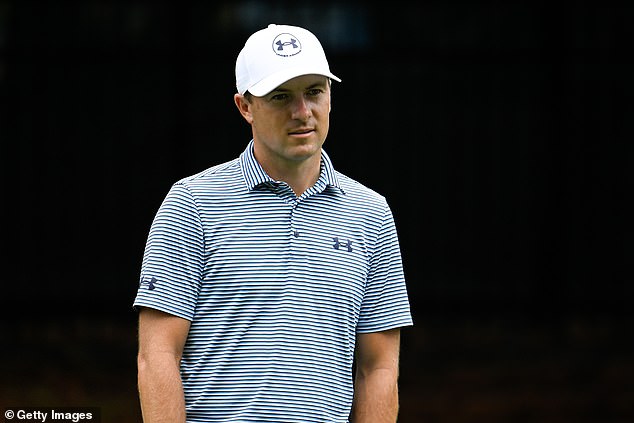Jordan Spieth Withdraws from Travelers Championship: A Deep Dive into the Incident
On June 19, 2025, the golfing world was rocked by the news that Jordan Spieth, a prominent figure in the sport, had withdrawn from the Travelers Championship. This event, part of the PGA Tour, is not only renowned for its competitive field but also boasts a whopping $20 million prize pool. The circumstances surrounding Spieth’s sudden exit have sparked conversations among fans and analysts alike. This article aims to explore the details leading up to his withdrawal and its implications for his career.
The Surprising Withdrawal
Spieth’s decision to withdraw on the very first day of the tournament marks a significant moment in his career. This was not merely a withdrawal from a regular event; it was Spieth’s first such occurrence in 299 events on the PGA Tour, and notably, his first withdrawal from any competition at any level. This highlights the rarity of such a situation for a player of his caliber, who has consistently participated in elite tournaments over the years.
Early Signs of Trouble
In a candid interview with reporters following his withdrawal, Spieth disclosed that he experienced discomfort as he warmed up on the practice range. Specifically, he reported that his neck began to "lock up," which inevitably affected his performance. He initially entertained the idea of pushing through the discomfort, as the Travelers Championship was categorized as an elevated event with no cuts and significant ranking points on offer.
The Struggles on the Course
As Spieth took to the course, his performance quickly deteriorated. He racked up five bogeys and did not secure a single birdie through 12 holes. It was apparent that the discomfort was taking a toll on his game, influencing not only his mental state but also his physical capabilities. In golf, even a slight ailment can dramatically interfere with a golfer’s swing and overall performance.
Moment of Decision
The turning point came during his tee shot at hole 13. As he prepared for the shot, he felt a sharp pain that led him to let go of his club, a clear indication that he was not in a condition to continue. “I was just going to try to see if I could somehow get through at even,” Spieth explained, illustrating his mindset of tenacity, which is often seen in competitive athletes. However, his physical limitations eventually led him to face the reality: continuing to play would do more harm than good.
An Unexpected Culprit
Interestingly, Spieth was uncertain about the cause of his neck pain, suggesting it could be due to something as mundane as "sleeping wrong." This unpredictability adds an intriguing layer to the incident. Even elite athletes can experience unforeseen challenges that can sideline them, reminding fans that they are all human.
Looking Ahead: Future Challenges
Notably, this incident occurs while Spieth prepares for another significant life change, as he announced the arrival of a child in a few weeks. He intends to take time off to ensure he recovers fully, a sensible decision for any athlete. While the disappointment of withdrawing from a prestigious event is palpable, focusing on health and family during this pivotal moment in his life has its merits.
Career Outlook
As a three-time major champion, Spieth has proven his mettle in golf, making significant strides this season, moving from rank 80 to 44 in the Official World Golf Ranking. Despite this setback, he exudes confidence about returning to form. “It’s disappointing,” he admitted, but he has expressed optimism that with the right recovery process, he could resume his path toward victory soon.
The Impact of Withdrawals in Professional Golf
Spieth’s withdrawal has broader implications, shedding light on the physical and mental toll that professional golf takes on athletes. The intensity of tournament schedules, coupled with the pressure to perform, can lead to such situations, making it imperative for players to prioritize their well-being. It’s a cautionary tale for aspiring golfers and seasoned professionals about the importance of listening to one’s body.
Conclusion: A Proactive Approach
In conclusion, Jordan Spieth’s unexpected withdrawal from the Travelers Championship serves as a reminder of the unpredictable nature of sports. While fans may be disappointed, it’s essential to support athletes like Spieth in making decisions that prioritize their health. As he prepares for both the arrival of his child and his return to golf, the golfing community will undoubtedly rally around him, keenly anticipating his next steps on the PGA Tour.
By recognizing the multifaceted layers behind such withdrawals, we not only gain insight into Spieth’s situation but also foster a deeper understanding of the challenges faced by professional athletes in today’s competitive landscape. As fans, we hope for his swift recovery and eagerly await his triumphant return to the greens.


